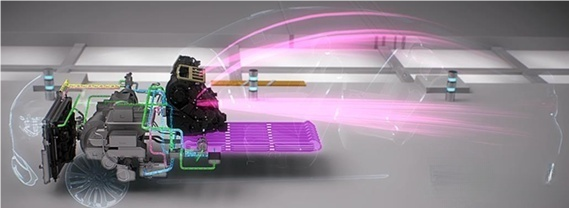The vehicle thermal management system (TMS) is an important part of the vehicle system. The development purposes of the thermal management system are mainly safety, comfort, energy saving, economy and durability.
Automotive thermal management is to coordinate the matching, optimization and control of vehicle engines, air conditioners, batteries, motors and other related components and subsystems from the perspective of the entire vehicle to effectively solve thermal-related problems in the entire vehicle and keep each functional module in the optimal temperature range. Improve the economy and power of the vehicle and ensure safe driving of the vehicle.

The thermal management system of new energy vehicles is derived from the thermal management system of traditional fuel vehicles. It has common parts of traditional fuel vehicle thermal management systems such as engine cooling systems, air conditioning systems, etc., as well as new parts such as battery motor electronic control. cooling system. Among them, replacing the engine and gearbox with three electric engines is the main change in the thermal management system of traditional fuel vehicles. In addition, there may be an electric compressor instead of an ordinary compressor, and a battery cooling plate, battery cooler, and PTC heaters or heat pumps are added in it.

Post time: Apr-28-2024




